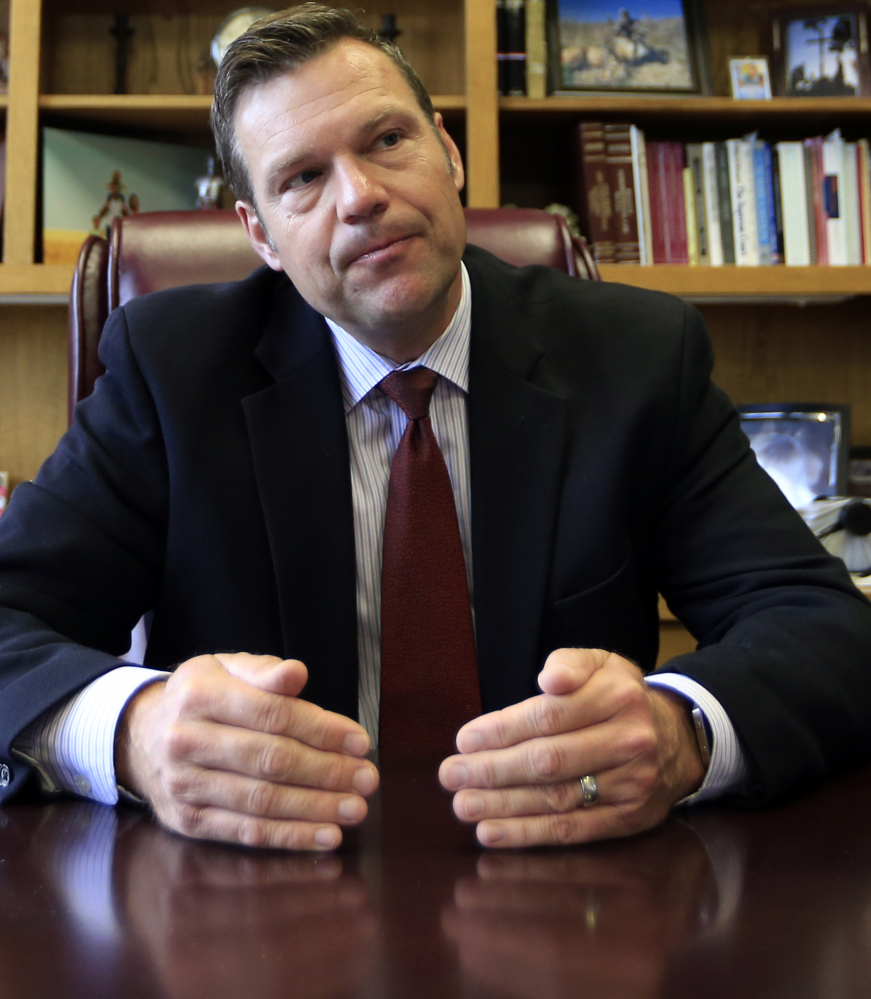In a rare display of bipartisanship, officials in nearly every state have said they will partially or fully refuse to comply with President Trump’s voting commission, which has encountered criticism and opposition after issuing a sweeping request for voter data nationwide.
Even as some of the resistance centers on Trump and members of his commission, the broader responses from the states indicate a strong and widespread belief that local officials should be managing elections and that the White House’s request for volumes of information went too far.
“What it says is some Republicans actually still believe in federalism and that our constitution still governs the way states hold their elections,” still Rick Wilson, a longtime party strategist and frequent Trump critic, who called the resistance by Republican state-level officials “commendable.” He also pointed to the commission’s origins in Trump’s repeated – and unsubstantiated – claims that voter fraud is widespread and cost him the popular vote last year.
“If Trump’s theory is correct, that means these states allowed voter fraud to occur,” Wilson said. “By definition, it will have to include a bunch of Republican states, and they don’t like that. . . . Most elections in the states are run beautifully.”
The resistance has swept across red and blue states alike, drawing in Democratic critics of Trump and Republicans uneasy about a broad federal request they suggest intrudes on states’ rights. It also casts a continued shadow over a probe Trump said could lead officials to “strengthen up voting procedures.”
In his executive order, Trump said the group would issue a report identifying “vulnerabilities . . . that could lead to improper voter registrations and improper voting.” Voting-rights advocates called the group a “sham,” saying they fear it will lead to increased voting restrictions. It is unclear what the pushback against the recent requests could mean for the panel’s ultimate report, expected in 2018.
This unease has been notable for expanding beyond Democratic critics of the president and including Republicans such as Arizona Secretary of State Michele Reagan, who called the commission’s request a “hastily organized experiment,” and Louisiana Secretary of State Tom Schedler, who described it as “federal intrusion and overreach.”
At least 44 states have said they will provide just some or none of the requested information. Officials with several other states have said they are still awaiting a formal letter from the commission before responding, while others have not elaborated on what they plan to provide.
Many states plan to hand over publicly available information, while others are outright refusing to participate. Experts say that partial responses could lead to further problems, because the commission could ultimately assemble disparate and incomplete information in an effort to draw a national picture.
“There’s gonna be a whole problem of uniformity and consistency that could create a lot of problems, even with the compiling of publicly available data,” said Vanita Gupta, former head of the Justice Department’s civil rights division during the Obama administration.
The commission’s request also has been targeted by a lawsuit filed in federal court. In a complaint filed Monday, the Electronic Privacy Information Center, a Washington-based nonprofit focusing on privacy and civil liberties, asked a federal court to prevent the commission from collecting state voter roll data.
Send questions/comments to the editors.



Success. Please wait for the page to reload. If the page does not reload within 5 seconds, please refresh the page.
Enter your email and password to access comments.
Hi, to comment on stories you must . This profile is in addition to your subscription and website login.
Already have a commenting profile? .
Invalid username/password.
Please check your email to confirm and complete your registration.
Only subscribers are eligible to post comments. Please subscribe or login first for digital access. Here’s why.
Use the form below to reset your password. When you've submitted your account email, we will send an email with a reset code.